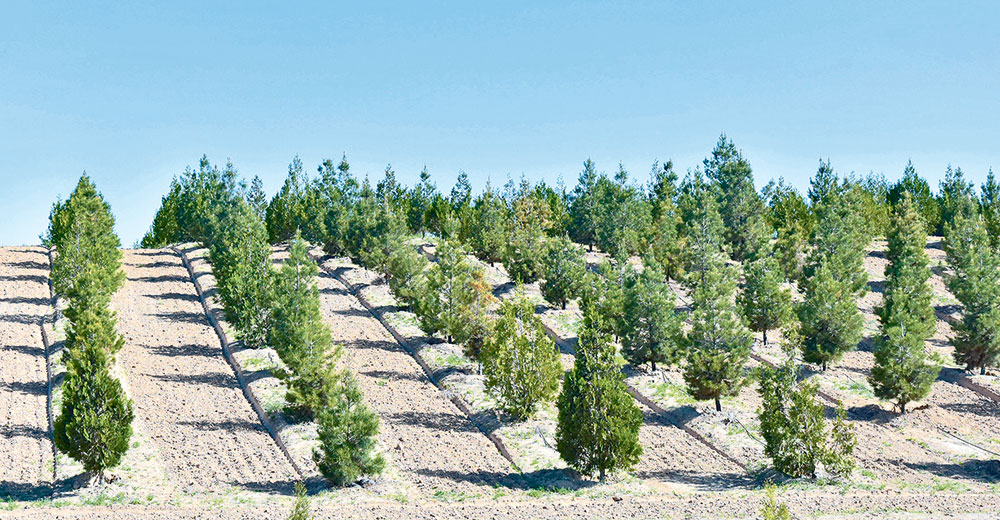Climate change is a many-sided process that is studied, analysed, predicted and fought against by taking special adaptive and mitigation measures, that is the adaption to the effects of climate change and the reduction of air pollution. The country’s desert scientists have been conducting research for many years in the light of scientific support for environmental policy, including afforestation activities that are in line with national landscaping traditions and the fulfilment of the country’s international obligations under three global conventions, one of which is on climate change.
From 2021, on the basis of the National Institute of Deserts, Flora and Fauna of the Ministry of Agriculture and Environment Protection of Turkmenistan have started developing new scientific and practical themes planned for five years. These include afforestation subjects, one of which is called “Influence of afforestation on soil and climatic conditions of the foothills of the Central Kopetdag Mountains” and aims to identify the influence of forests on microclimate, soil structure and its moisture content, temperature, soil enrichment with humus as a result of fallen leaves and needles, grass vegetation state, air quality near forests and water discharge areas. These and other factors will be explored on the basis of production areas of the Forest Seed Farming and Protection of Natural Parks Inspection – one of the structures of the Ministry of Agriculture and Environment Protection. There, at the mountains in the south of Ashgabat, there are many hectares of already mature coniferous and deciduous trees.

